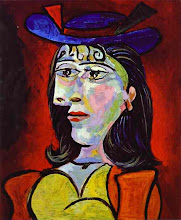 It has taken a long time for Fleischmann to write a Holocaust story--long enough for him to write more than sixty other books. I can understand his reluctance. I lived in Poland for almost a year a short train ride away from Auschwitz. I never visited. The train would stop there on the way to Krakow, and I would watch that notorious building glide slowly past the window as we neared the station. The ghosts of the Jewish dead are everywhere there. I felt the horror of it on my skin and in the air I breathed. I visited the Kazimierz, the old Jewish quarter in Krakow where Schindler's List was filmed. I read Elie Wiesel with tears streaming down my cheeks. But to Auschwitz I could not go.
It has taken a long time for Fleischmann to write a Holocaust story--long enough for him to write more than sixty other books. I can understand his reluctance. I lived in Poland for almost a year a short train ride away from Auschwitz. I never visited. The train would stop there on the way to Krakow, and I would watch that notorious building glide slowly past the window as we neared the station. The ghosts of the Jewish dead are everywhere there. I felt the horror of it on my skin and in the air I breathed. I visited the Kazimierz, the old Jewish quarter in Krakow where Schindler's List was filmed. I read Elie Wiesel with tears streaming down my cheeks. But to Auschwitz I could not go.Fleischmann does not set his tale in the death camps or the crowded ghettos but in recently reopened entertainment halls found in the skeletal remains of post-war European cities. A second-rate ventriloquist finds himself possessed by a dybbuk, the spirit of a murdered Jewish child. The dybbuk makes the ventriloquist famous, becoming the voice of his wooden sidekick. As Europe tries to forget the war -"The war's history. Yesterday's newspapers" protests the ventriloquest - the dybbuk has unfinished business, "Not for me. I placed a want ad. Let me look at the audience". The dybbuk is using the ventriloquist's rise to fame as a vehicle to hunt down the SS officer who killed him.
Despite being a short book, The Entertainer is funny, tragic, and thought provoking. The dybbuk is a self-assured, witty, and intelligent boy who does not play the role of pathetic victim. He cries at night and calls the name of his murdered sister, but he hunts his prey with a shrewd and unrelenting determination. He is much stronger than the almost hapless Freddie he possesses.
Freddie learns more about the world and himself through his friendship with the dybbuk. He is "dimly aware" of the atrocities commited by the Nazis, but like many, Freddie cannot comprehend the extent "But so many?". He learns that the dead boy once saved his life but still cannot allow himself to be possessed by a Jew, "When I was growing up, I never saw a Jew. I thought they all wore horns and tails". When the dybbuk refuses to perform on Friday nights and Saturdays, people begin to think he is Jewish. His fiance is let down when he tells her he is not actually Jewish, "How disappointing! Polly exclaimed. Can you imagine me dragging a Jewish husband home to Alabama. Wow!". A Jew for her is an exotic being complete with charming accessories, "Don't you think we'll look heavenly under the canopy thing?". Freddie moves from being an uninformed anti-semitic to someone well versed in Jewish life. When he mets Polly's uncle, the well-known racist of the family, Freddie is surprised to find himself offended when the uncle refuses to shake hands.
Fleischmann was finally ready to write his story of the Holocaust when he discovered a way to incorporate the Jewish sense of humor through the dybbuk and thus a glimmer of hope. However, for me, it is Freddie's slow dawning of friendship, admiration and understanding for the dybbuk which allows Fleischmann to let in "the occasional shaft of sunlight" to yet another dark chapter of man's inhumanity to man.

2 comments:
Yes, Yes, Yes! What a thoughtful review. And you have some history of your own to back it up. Very well said.
Megan Germano
Read, Read, Read
http://www.5thgradereads.blogspot.com
I love your blog! I teach 6th grade, so my readers range from lower middle grade novels to young adult novels. I love that you focus on middle grade novels!
I am looking forward to reading this book.
Post a Comment